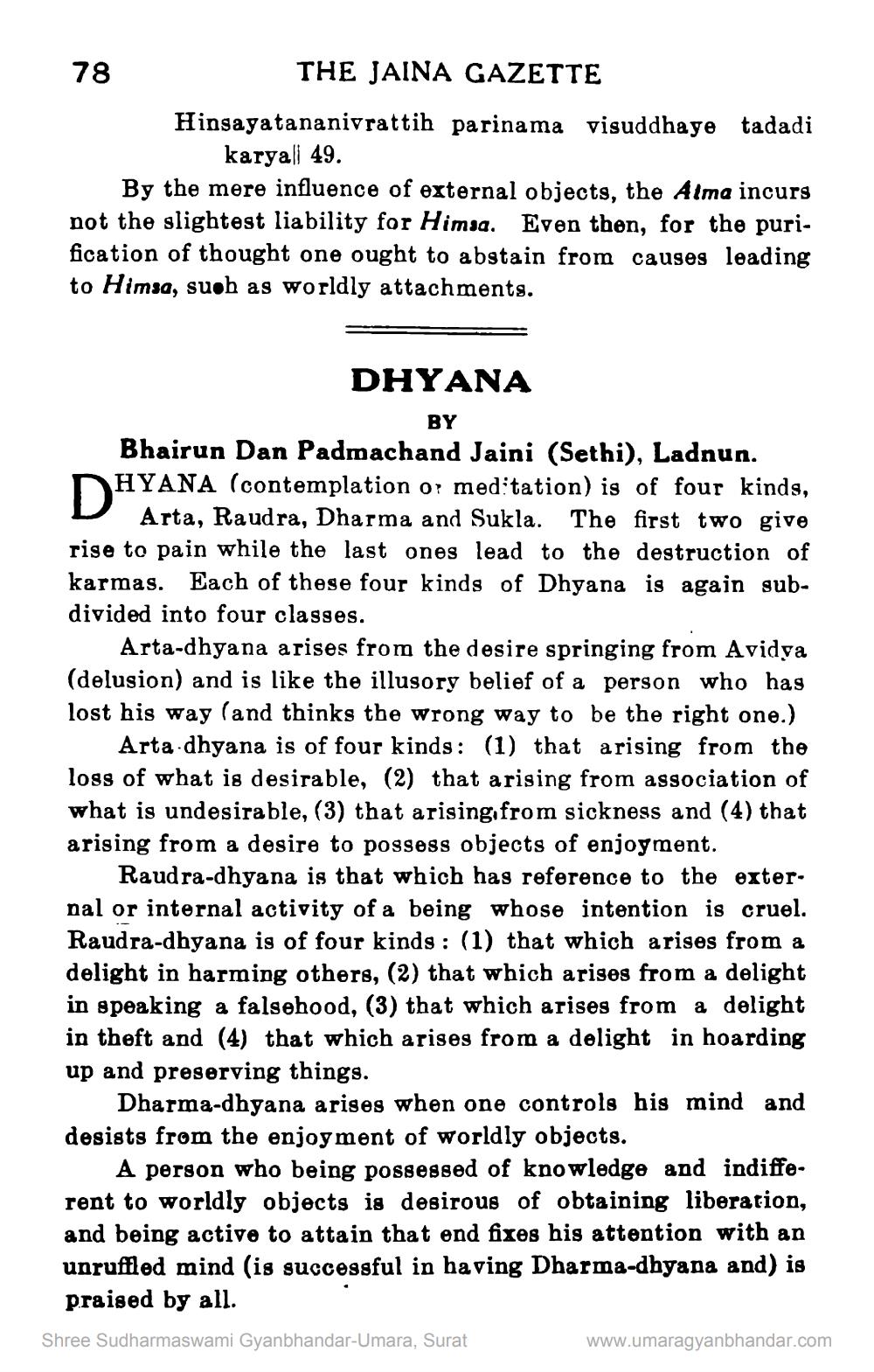________________
78
THE JAINA GAZETTE Hingayatananivrattih parinama visuddhaye tadadi
karyall 49. By the mere influence of external objects, the Atma incurs not the slightest liability for Himsa. Even then, for the purification of thought one ought to abstain from causes leading to Himsa, suob as worldly attachments.
DHYANA
BY Bhairun Dan Padmachand Jaini (Sethi), Ladnun. DHYANA (contemplation or meditation) is of four kinds,
Arta, Raudra, Dharma and Sukla. The first two give rise to pain while the last ones lead to the destruction of karmas. Each of these four kinds of Dhyana is again subdivided into four classes.
Arta-dhyana arises from the desire springing from Avidya (delusion) and is like the illusory belief of a person who has lost his way (and thinks the wrong way to be the right one.)
Arta dhyana is of four kinds: (1) that arising from the loss of what is desirable, (2) that arising from association of what is undesirable, (3) that arising from sickness and (4) that arising from a desire to possess objects of enjoyment.
Raudra-dhyana is that which has reference to the exter. nal or internal activity of a being whose intention is cruel. Raudra-dhyana is of four kinds : (1) that which arises from a delight in harming others, (2) that which arises from a delight in speaking a falsehood, (3) that which arises from a delight in theft and (4) that which arises from a delight in hoarding up and preserving things.
Dharma-dhyana arises when one controls his mind and desists from the enjoyment of worldly objects.
A person who being possessed of knowledge and indifferent to worldly objects is desirous of obtaining liberation, and being active to attain that end fixes his attention with an unruffled mind (is successful in having Dharma-dhyana and) is
praised by all. Shree Sudharmaswami Gyanbhandar-Umara, Surat
www.umaragyanbhandar.com




